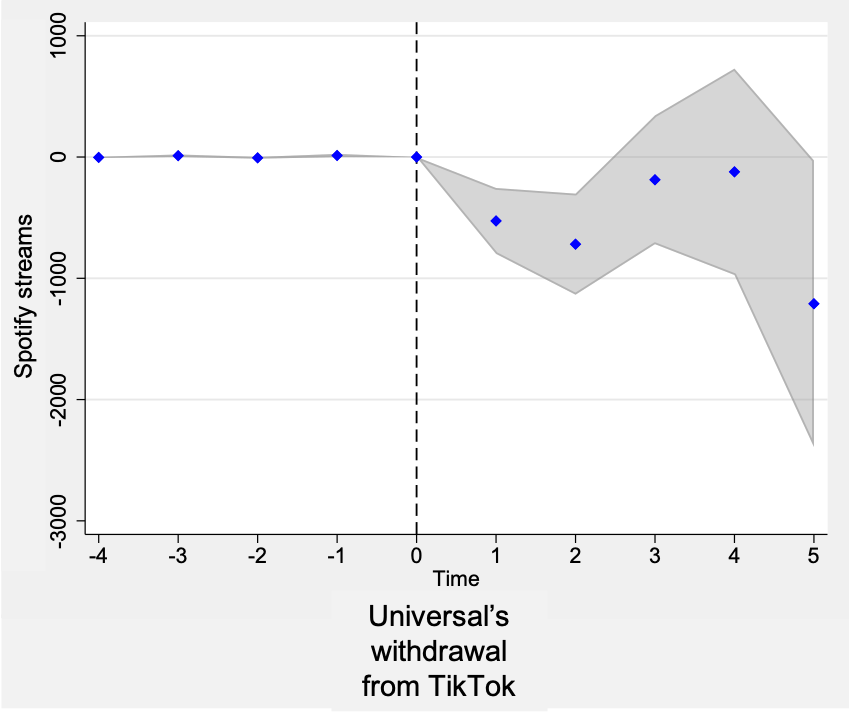Research
Publications
“The Value of Platform Endorsement,” with Xu Zhang and Anja Lambrecht
Forthcoming at Marketing Science Link
Abstract
Many digital platforms with large product assortments endorse a select group of items to facilitate user choice. However, while it seems intuitive that such endorsement may increase the sales of endorsed items, little is known about its effect on unendorsed items, and on the platform. Using data from a field experiment conducted by an online freelance platform, we examine the effect of exposure to platform endorsement on user search and purchase behavior. We find that exposure to platform endorsement increases user search and purchases not only for endorsed services, but also for unendorsed services. We link the increase in search and purchases to an increase in the perception of the quality of services offered on the platform. We further explore heterogeneity in the effect of platform endorsement and find that the effect of exposure to platform endorsement on purchase is more pronounced for users with a higher propensity to purchase. We discuss implications for platforms, merchants, and regulators.
Working Papers
“Gender Disparity in Online Reputation: Evidence from an Online Freelance Platform,” with Anja Lambrecht and Xu Zhang Link
Abstract
Online ratings aim to reduce information asymmetry between buyers and sellers, assisting buyers in making more informed purchase decisions. However, a problem arises if ratings are biased and do not reflect true buyer satisfaction. We analyze online ratings for services by male and female freelancers using data from an online freelance platform that elicits both public and private ratings from buyers post job completion. Public ratings are displayed on the website, while private ratings remain undisclosed. Using private ratings as a proxy for buyer satisfaction, we find that, conditional on the same private rating, public ratings are higher for male freelancers. We propose this is a result of buyers' gender stereotypes about confrontational behavior of freelancers following a critical review. Buyers are more concerned about a threat of confrontation with male than female freelancers and, thus, give male freelancers a higher public rating. We present two supporting pieces of evidence. This gender disparity in public ratings is most pronounced for buyers from countries with greater gender inequality and for buyers from US states with a lower percentage of women in the labor force. These results matter for freelancers and platforms because systematic differences in evaluation by gender can lead to unfair outcomes for platform participants.
“Social Media, Music Consumption, and Cross-Platform Spillover Effects,” with Anja Lambrecht and Anita Rao Link

Abstract
Platforms play an important role in allowing users to consume digital content such as music or videos. At the same time, platforms may play a vital role in popularizing content that consumers may view or listen to through other platforms or channels. In this paper, we study the spillover effects of music consumption on TikTok on consumption on other platforms or channels. Specifically, we focus on Universal Music Group's (Universal's) withdrawal of its licenses from TikTok in early 2024 and study the impact of consumption of music by Universal's artists on Spotify. Our results demonstrate a short-term drop in streams on Spotify. To understand why the drop occurs, we examine discovery via Shazam---a music discovery app---and find discovery of Universal songs on Shazam drops after the exit, suggesting a reduction in discovery is the primary driver of the effect. Because discovery might matter most for newer songs and songs used more in TikTok videos, we evaluate the heterogeneity along these two dimensions and find further support for the discovery mechanism. Our results point to the role of platforms in popularizing digital content and show important spillover effects may occur between different platforms.
“Influencer Marketing: Content Attributes and Consumer Engagement,” with Anja Lambrecht Link
Abstract
Influencers with a large social media following often leverage their popularity to promote sponsored content for brands. However, it is not clear how consumers respond to sponsored content relative to the influencer’s organic content. Using a dataset of 180,404 posts created by 510 Instagram influencers, we examine if consumer engagement differs for sponsored relative to organic posts. We identify sponsored posts based on express disclosure as well as based on supervised learning. We instrument for a post being sponsored using the timing of the FTC’s warning to influencers regarding lack of sponsorship disclosure and its subsequent tightening of disclosure requirements. As a further instrument, we use category-level advertising shocks. We show that consumer engagement, measured by the number of likes, is lower with sponsored than with organic content. However, conditional on a post being sponsored, we find that advertising disclosure increases engagement. We then explore what characterizes successful influencer content, especially, whether practitioners’ focus on authenticity of content is justified. We use three measures of authenticity – topic alignment of a post with other content of the influencer, an influencer’s propensity to share brand related content, and the number of times a brand is mentioned in the post. We find that authenticity of content mitigates the negative effect of sponsorship on engagement. Our findings are relevant for regulators who are concerned about the lack of advertising disclosure in influencer marketing and can inform influencers’ and advertisers’ content creation strategies.
Work in progress
“Attracting the Marginal: Online Advertising and Usage,” with Anja Lambrecht
Abstract
Research has shown that online advertising is effective in attracting new consumers. However, it is less clear if consumers who adopt a product in response to online advertising have a different propensity to use the advertised product compared to consumers who adopt the product but have not viewed an online ad. We use field experimental data from an advertising campaign for a video streaming app to answer this question. In the experiment, consumers in the treatment group were exposed to online advertising for the app, while consumers in the control group were not exposed to online advertising. We find that consumers exposed to online advertising are indeed significantly more likely to install the app. However, our data suggest that online advertising is not effective in increasing usage of the app, measured as the number of sessions. On the contrary, we find that conditional on installation, consumers in the treatment group use the app significantly fewer times compared to consumers in the control group. Moreover, conditional on installation, consumers exposed to online advertising are directionally less likely to subscribe to the video streaming service relative to consumers not exposed to online advertising. This suggests that online advertising attracts marginal consumers who have a lower preference for the advertised app compared to consumers who install without having viewed the ad. Our findings are relevant to advertisers because they shed light on the limits of online advertising in acquiring profitable consumers.
